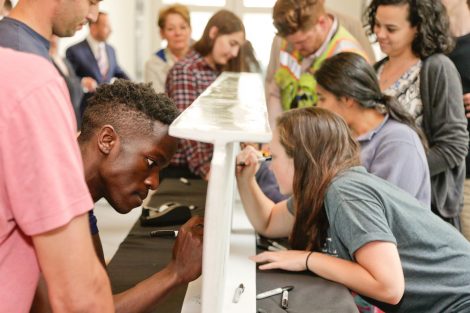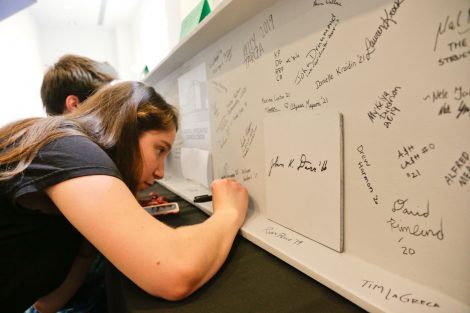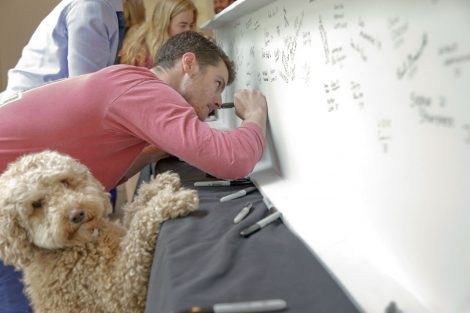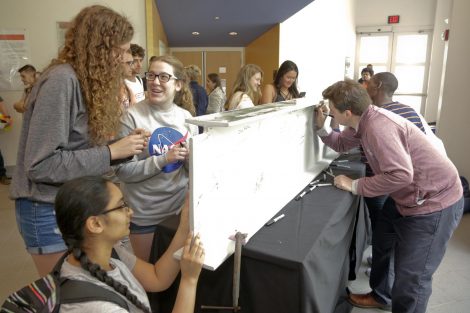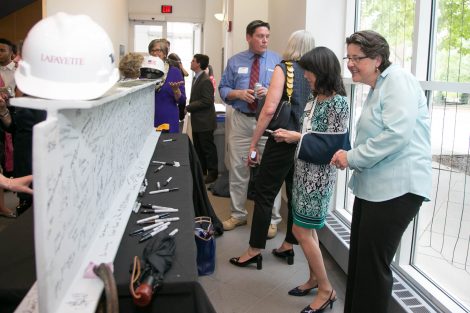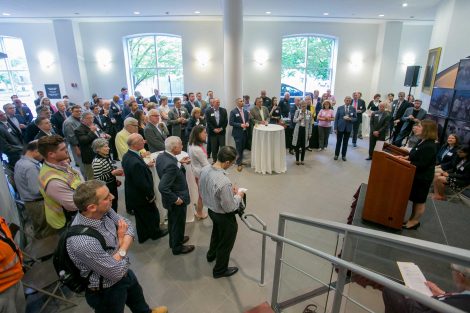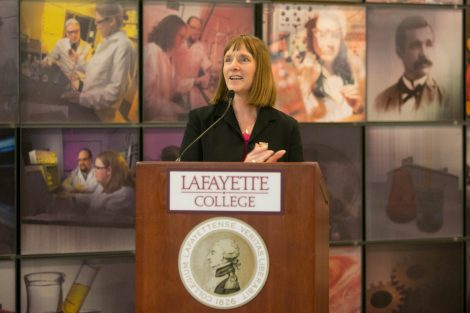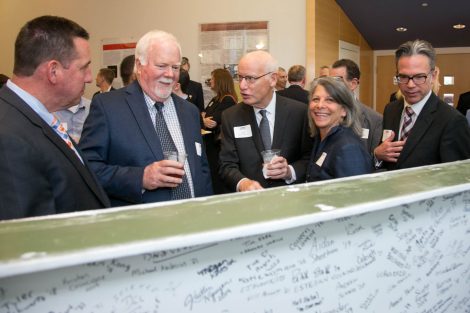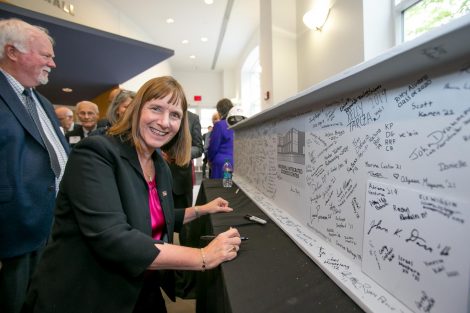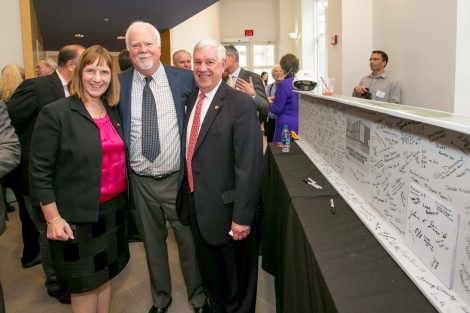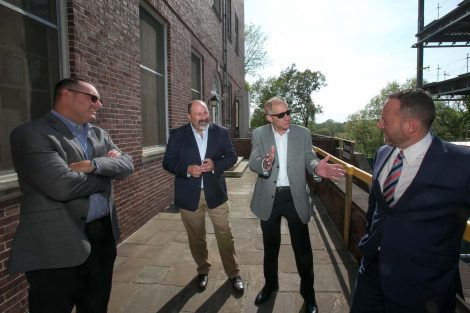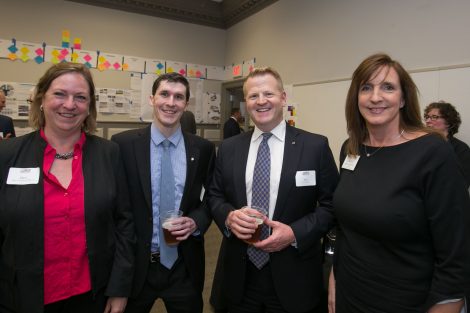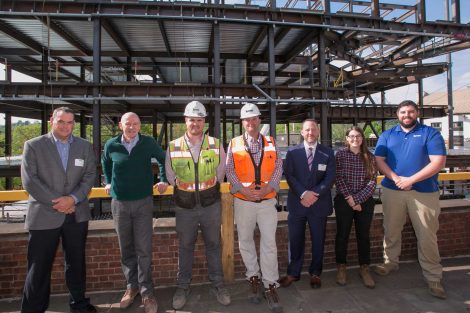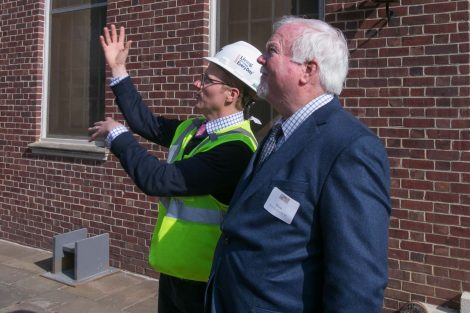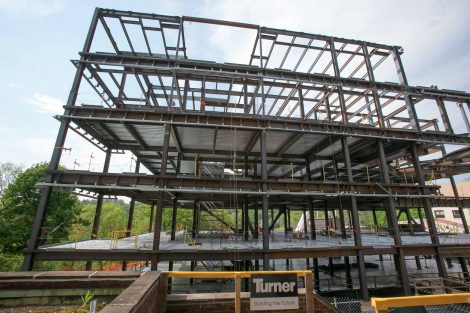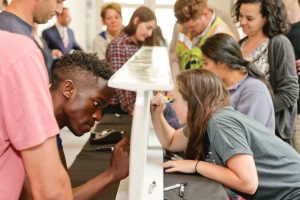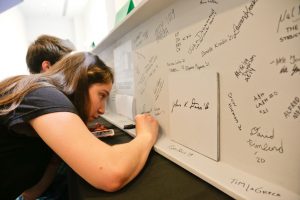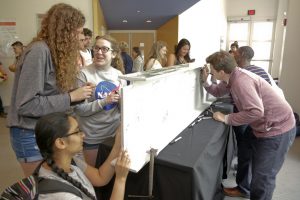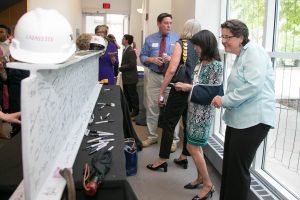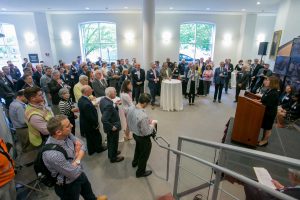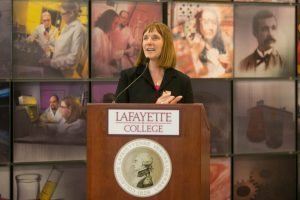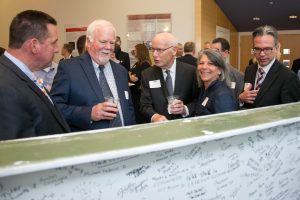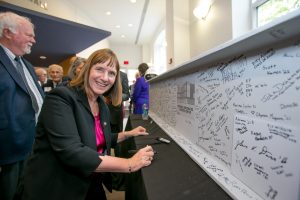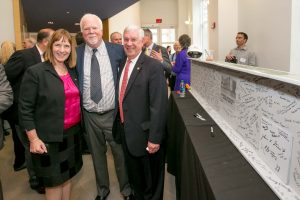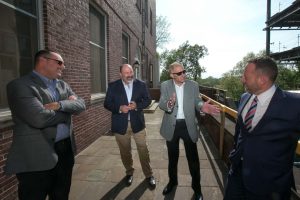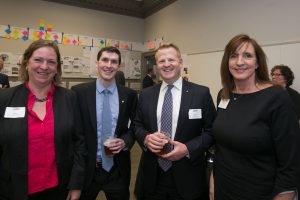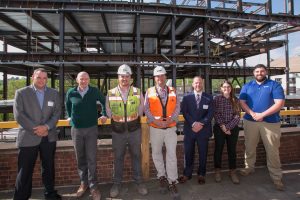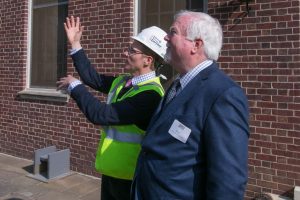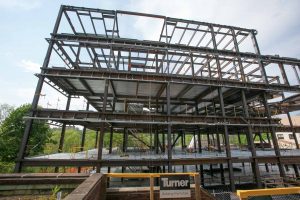Pards add signatures to I-beam for highly anticipated Rockwell Integrated Sciences Center
By Bryan Hay
Students, faculty, staff, and trustees on May 10 signed their names for posterity on a 10-foot I-beam for the Rockwell Integrated Sciences Center (RISC), which is quickly taking shape on Anderson Courtyard.
Throughout the day, hundreds of names with current class years and others dating back decades were applied to the structural beam, painted light gray to accentuate the array of signatures, as the campus community came together to celebrate a milestone in the largest capital project in Lafayette College’s history.
During a ceremony at Hugel Science Center, President Alison Byerly welcomed attendees and thanked supporters of the $75 million RISC, giving special acknowledgment to S. Kent Rockwell ’66 for whom the building is named.
Byerly described Anderson Courtyard as “the hub of scientific inquiry” at Lafayette where Hugel, Acopian Engineering Center, and RISC represent the College’s dedication to preparing and inspiring science and engineering students.
“These buildings are intentionally co-located because we understand that solutions to the world’s most challenging problems are not isolated to one discipline but are instead found at the intersection of the sciences and other academic specialties,” she said.
Noting Lafayette’s imaginative start to the project last year when an underground charge, instead of traditional shovels, broke ground for RISC, Byerly said the College took a similarly unique approach with the beam signing.
Instead of being buried behind the walls of RISC, the signed beam will be forever visible from the Bradbury Dyer III ’64 Center for Innovation and Entrepreneurship on the building’s third floor.
Faculty members and students, eagerly looking forward to the opening of RISC, also shared their thoughts on how the building will further enhance the academic experience at Lafayette.
Joanne Ordille, assistant professor of computer science, said RISC is more than a building; “it is our future,” noting that the field of computer science is experiencing accelerated growth and intertwined with other disciplines that will be supported by the Daniel and Heidi Hanson ’91 Center for Inclusive STEM Education.
Trisha Agarwal ’20 (computer science) said successful computer science has to come from a diversity of ideas. “No one can create perfect software,” she said. “RISC gives us more space to do collaborations.”
Megan Rothenberger, associate professor of biology, said RISC will provide flexible space to allow for the growth in her department, including the addition of computational and mathematical biology.
Caroline Bottega ’19 (environmental science) said environmental science is “interdisciplinary at its core.” She described how her field requires visits to multiple classrooms across campus with “no place to call our own. RISC will change all that.”
The ceremony concluded with Byerly, Rockwell, and Ed Ahart ’69, chairman of the Board of Trustees, signing their names on the beam.
“We are excited to now see our vision being finally realized,” Ahart said. “As we think about the future of the College and the expansion that is taking place and our efforts to enhance our visibility in the STEM fields, we see this building as representing a critical turning point for Lafayette.”
The 103,000-square-foot, five-story RISC on Anderson Courtyard will bring together biology, computer science, and environmental science and studies, along with additional space for neuroscience, and will be connected to Acopian Engineering Center. Kunkel Hall, home to the biology department, will be repurposed following the department’s move into the new building, as will the fifth floor of Acopian, current home to the computer science department.
Lafayette’s Bradbury Dyer III ’64 Center for Innovation and Entrepreneurship also will be based in RISC, along with the Daniel and Heidi Hanson ’91 Center for Inclusive STEM Education and unplanned spaces for future academic growth. RISC is scheduled to open for fall semester 2019.
Can’t wait till the grand opening? Take a virtual tour of RISC.
